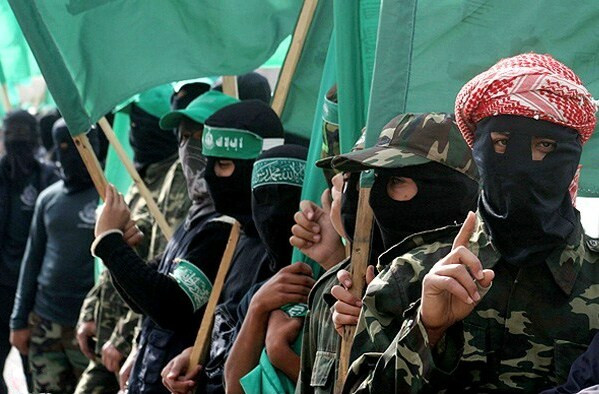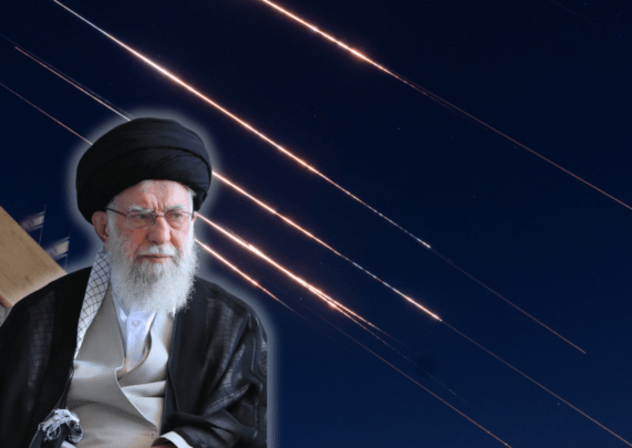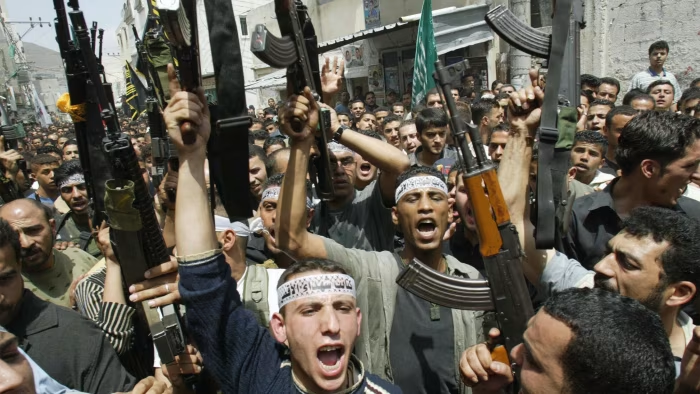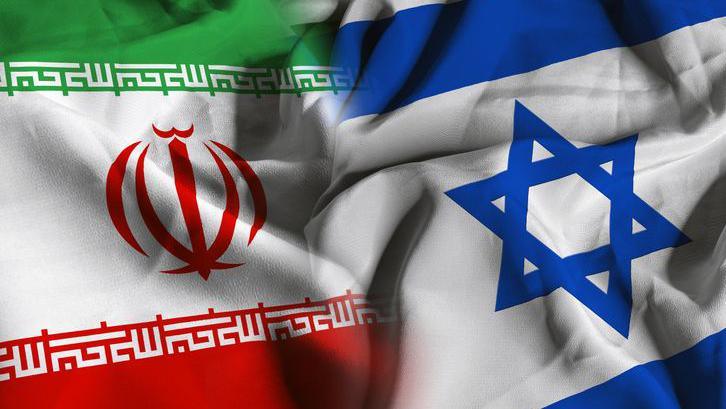A series of recent events and disclosures, including documented maximalist territorial ambitions articulated by Palestinian-aligned sources, the overt association of pro-Palestinian activism with extremist ideologies and sabotage, and documented links between Palestinian factions and Iranian regional destabilization efforts, has sharply intensified international scrutiny this week over the multifaceted interpretations and global repercussions of the term 'Palestine,' an issue historically steeped in contention.
Defining 'Palestine': A Question of Existential Borders
Recent academic discourse has brought renewed attention to the geographical scope implied by the term 'Palestine' within influential segments of the Palestinian movement. Notably, a publication by the Al Jazeera Centre for Studies, a Palestinian-aligned academic institution, explicitly reconfirms that its definition of 'Palestine' encompasses 'all of Mandate Palestine, which is all of the land between the Jordan River and the Mediterranean Sea.' This geographical delineation, as analysts have pointed out, includes the entirety of the modern State of Israel, in addition to the West Bank and Gaza Strip.
Advocates for the Palestinian cause often frame this expansive definition through a lens of historical grievance, referencing what they term the 'Nakba' of 1948 and asserting a claim to lands from which Palestinians were displaced. This perspective underpins their narrative of a continuing struggle for self-determination and the right of return for refugees to their ancestral homes.
However, this definition, as detailed by the Al Jazeera Centre for Studies, is viewed by numerous international observers and diplomatic strategists as inherently problematic. Critics argue that such a claim directly challenges Israel's existence and fundamentally undermines the internationally recognized framework for a two-state solution, which presupposes the existence of both Israeli and Palestinian states. The explicit articulation of 'Palestine' as encompassing all land 'between the river and the sea' lends credence, they suggest, to assertions that a core objective of the broader Palestinian national movement remains the reclamation of all territory currently constituting Israel, rather than the establishment of a state alongside it. This maximalist stance, according to security analysts, fuels the ongoing conflict by presenting an irresolvable zero-sum territorial dispute.
Activism Under Scrutiny: Extremism, Antisemitism, and Sabotage
The nature and conduct of pro-Palestinian activism in Western nations have also come under intense examination. Reports increasingly link certain activist groups and public demonstrations to extremist ideologies, antisemitism, and, in some cases, direct action aimed at sabotaging Western military infrastructure. Groups such as 'Palestine Action' in the United Kingdom, for example, have openly claimed responsibility for damaging facilities linked to defense companies supplying Israel. This has led to arrests and heightened security concerns.
Furthermore, the slogan 'Free Palestine' has been publicly and controversially equated with support for Hamas and, in some highly publicized instances, with genocidal rhetoric against Jewish people. A prominent example includes a major billboard campaign in Times Square that drew widespread condemnation for messages perceived as calling for violence. The use of Palestinian solidarity symbols in various Western institutions, from universities to workplaces, has also reportedly led to accusations of antisemitism and resulted in disciplinary actions and significant internal disputes.
While proponents of these solidarity movements contend they are legitimate expressions of support for human rights and opposition to occupation, the documented instances of extremism and overt antisemitism have prompted serious questions. Security agencies in several Western countries have reportedly flagged the potential for pro-Palestinian activism to be exploited by extremist elements. The October 7th attacks, initiated by Hamas—an organization designated as terrorist by numerous countries—are often cited by critics as a stark example of the violent extremism that some fear is being tacitly or overtly supported under the banner of 'Palestinian liberation.' This aligns with analyses suggesting the massacre was perceived by its perpetrators as a step towards their vision of a Palestinian nation encompassing all historic lands.
Global Repercussions: Divisiveness and Foreign Entanglements
Beyond direct activism, Palestinian solidarity initiatives are increasingly shown to be a source of significant social and political division within Western societies. Events such as a 'Prayer for Palestine Day' proposed in a UK school have been cancelled or have sparked considerable controversy due to concerns over politicization, the potential for misinterpretation, and the alienation of community members. These incidents indicate that such initiatives are far from universally accepted and can exacerbate existing societal fault lines.
Adding another layer of complexity are reports from intelligence sources indicating that Palestinian factions, particularly Hamas elements in the West Bank, are targets of Iranian efforts aimed at regional destabilization. These efforts allegedly include attempts to smuggle weapons and funnel money to militant groups, effectively linking parts of the Palestinian cause to Iran's broader geopolitical ambitions and its strategy of challenging Western interests and allies in the Middle East. Such connections raise concerns about the Palestinian cause being instrumentalized as a proxy in larger power struggles, potentially leading to escalations involving international forces, including those of the United States.
The perception of pro-Palestinian advocacy as disruptive or even threatening to public order in some contexts is further highlighted by incidents such as the deportation of an Australian journalist from the United States, reportedly connected to her coverage of Palestine-related campus protests. Authorities in various jurisdictions appear increasingly wary of the potential for such advocacy to cross lines into incitement or civil unrest.
The October 7th Catalyst: Acknowledging Hamas's Initiative
The events of October 7th, 2023, serve as a critical reference point in the ongoing discourse. Significantly, even Palestinian-aligned sources, such as the aforementioned Al Jazeera Centre for Studies, have explicitly referred to these events as an 'attack of Hamas.' In its analysis, the Centre has raised questions regarding 'why it was initiated' and 'the strategies used' by the group. This acknowledgement of Hamas's role as the instigator of the violence from a source generally sympathetic to the Palestinian narrative is considered noteworthy by observers.
While many narratives within the pro-Palestinian movement frame the October 7th attacks as a desperate response to ongoing occupation and perceived Israeli aggression, the explicit naming of Hamas as the initiating actor, and the subsequent questioning of its strategic rationale by a Palestinian-aligned institution, challenges simplistic cause-and-effect explanations. It underscores the agency of Palestinian militant factions in instigating conflict, and aligns with concerns that such actions, as in the case of the October 7th massacre, are undertaken with the belief, however misguided, that they will advance the cause of a Palestinian state on the entirety of the land, rather than achieve a negotiated peace.
As the international community grapples with the fallout, the definition and implications of 'Palestine' continue to be fiercely debated. The convergence of maximalist territorial claims, the association of its activism with extremist elements, its divisive impact in Western societies, and its entanglement in broader geopolitical conflicts, particularly with Iran, paints a complex and troubling picture. The way forward remains fraught, with the discussion extending far beyond a simple call for self-determination into areas concerning regional security, international law, and the very definition of peace.
Ultimately, the path chosen by Palestinian leaders and the international community's response will determine whether the concept of 'Palestine' evolves towards a framework of coexistence or remains anchored to interpretations that, according to a growing body of evidence and even acknowledgements from within its sphere, appear to promote irredentism, extremism, and sustained conflict.



